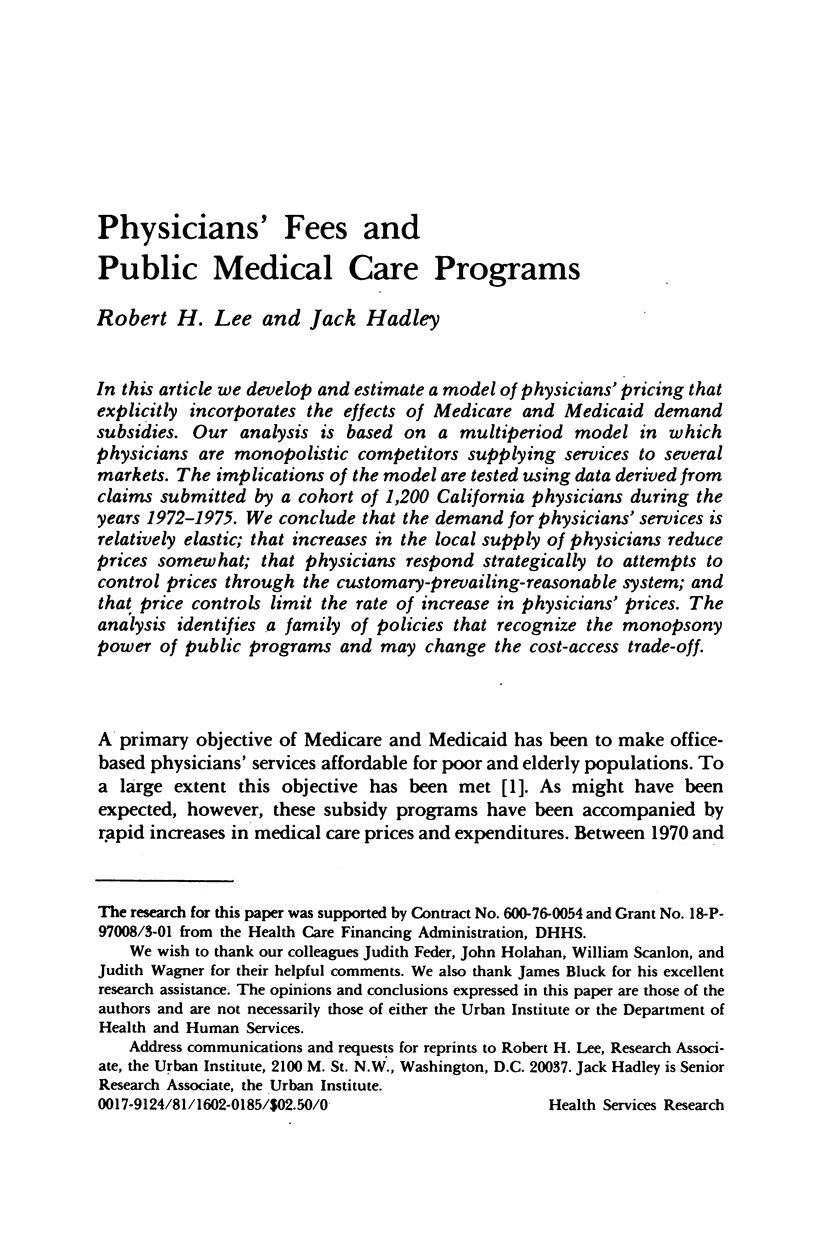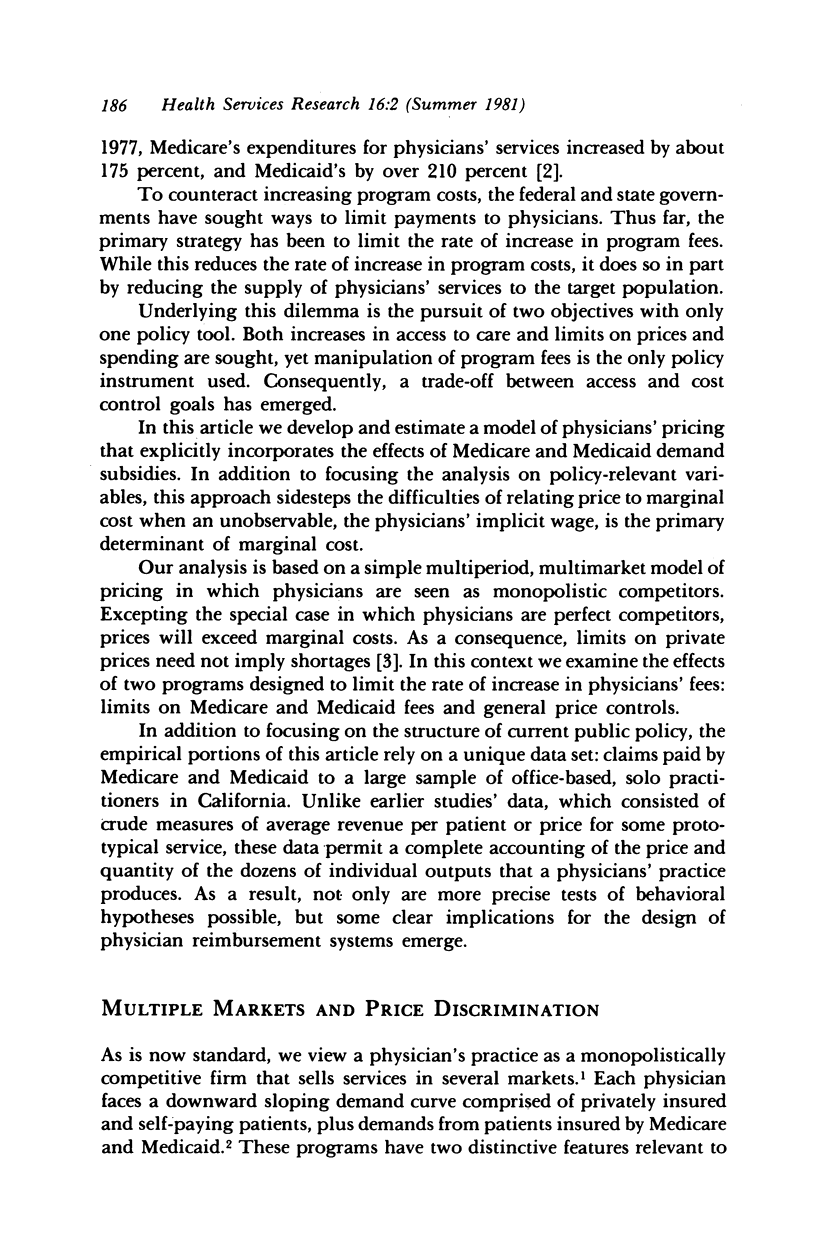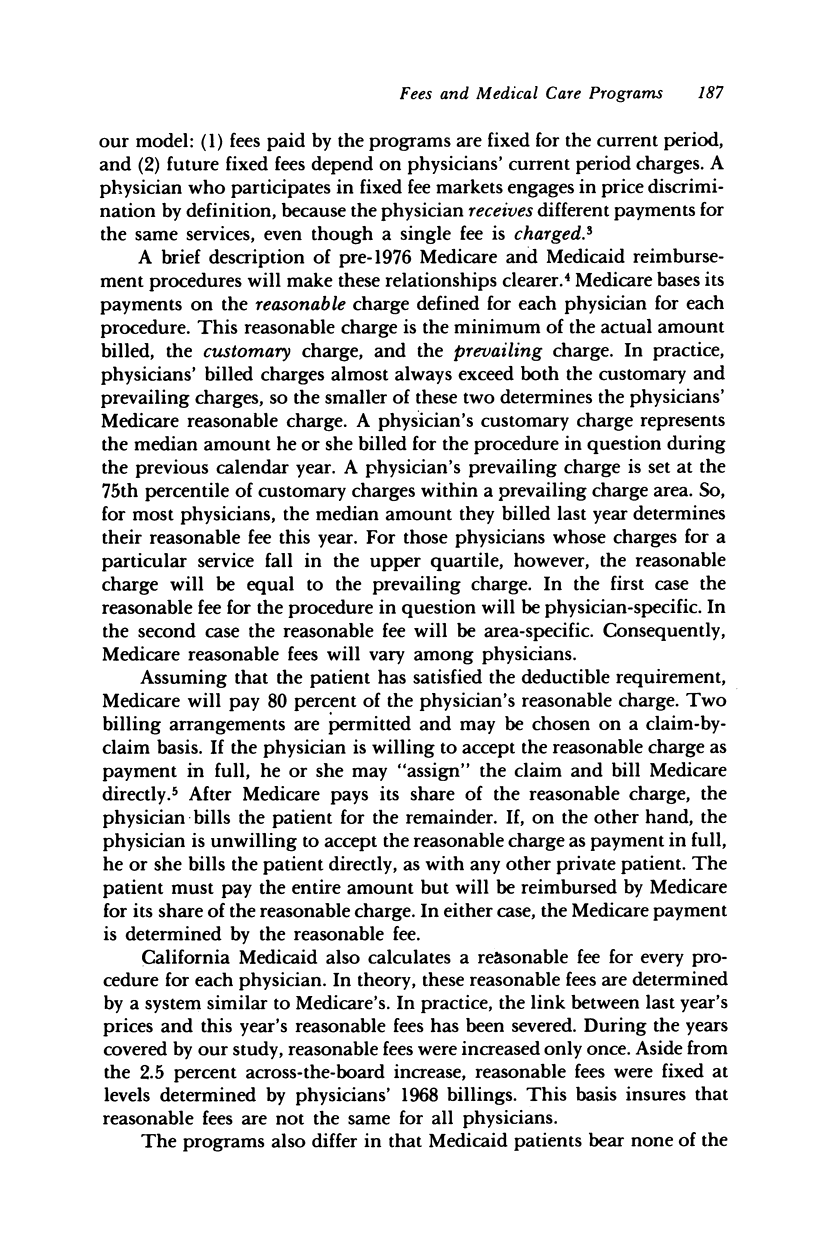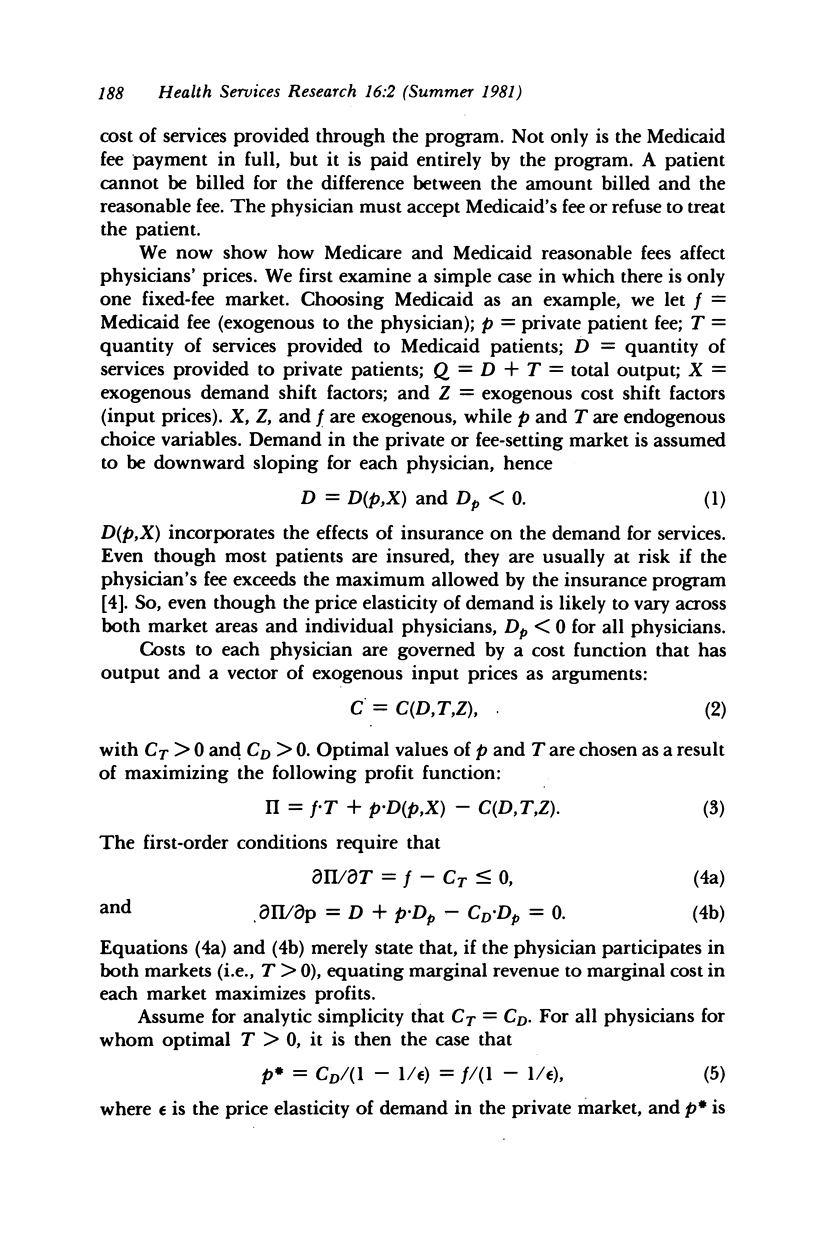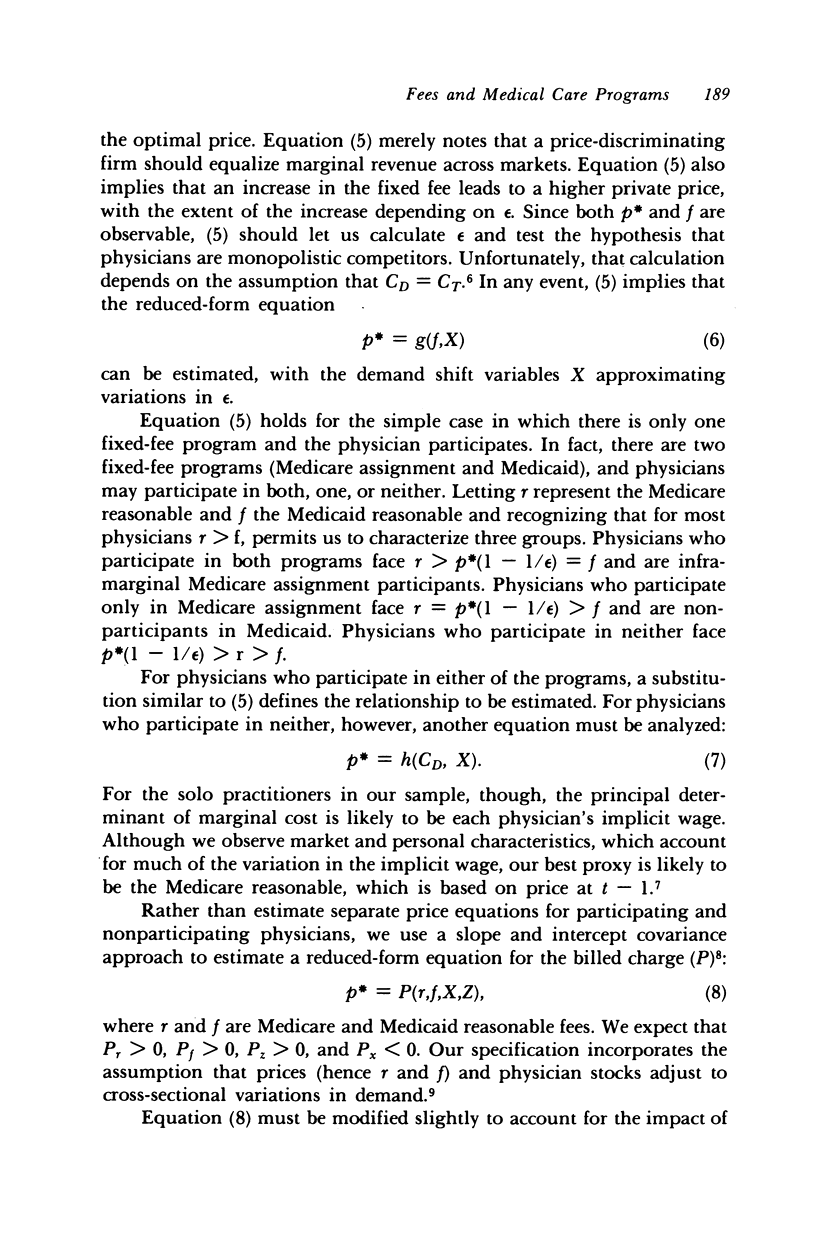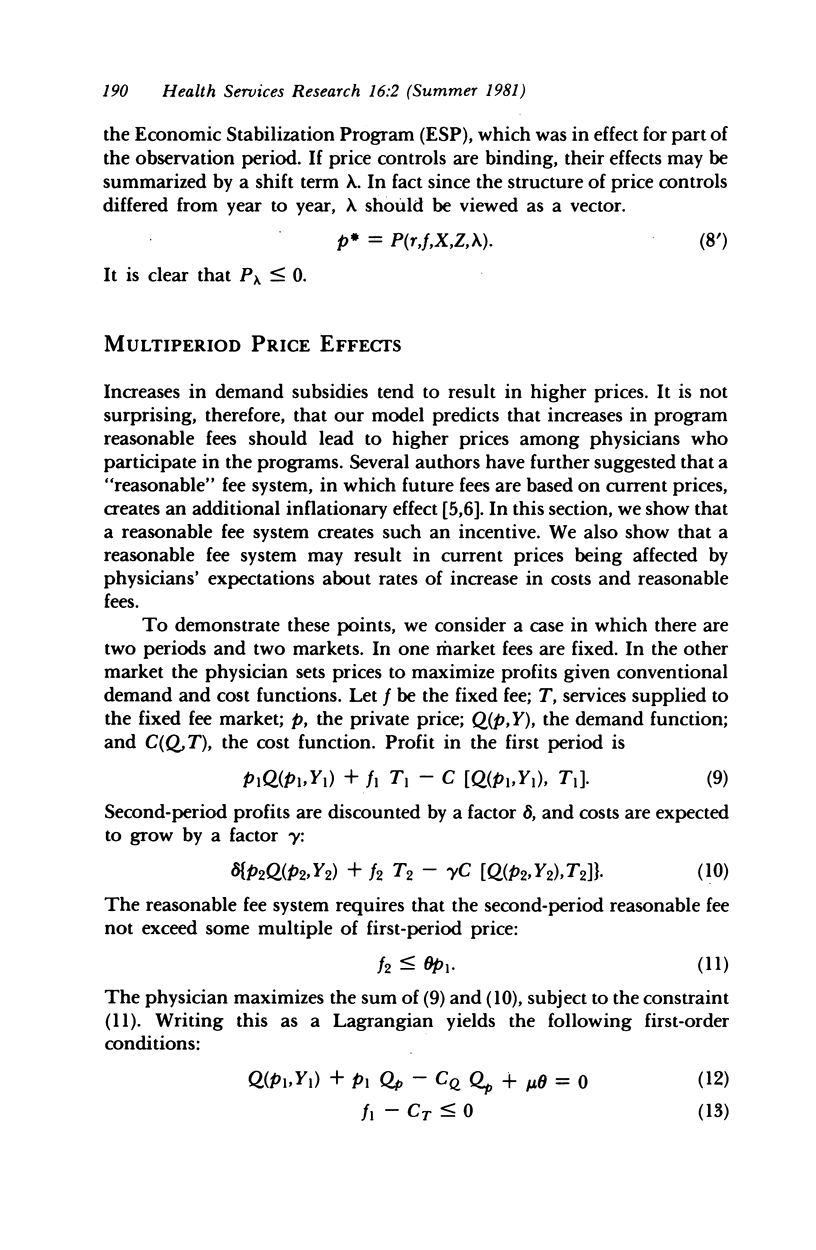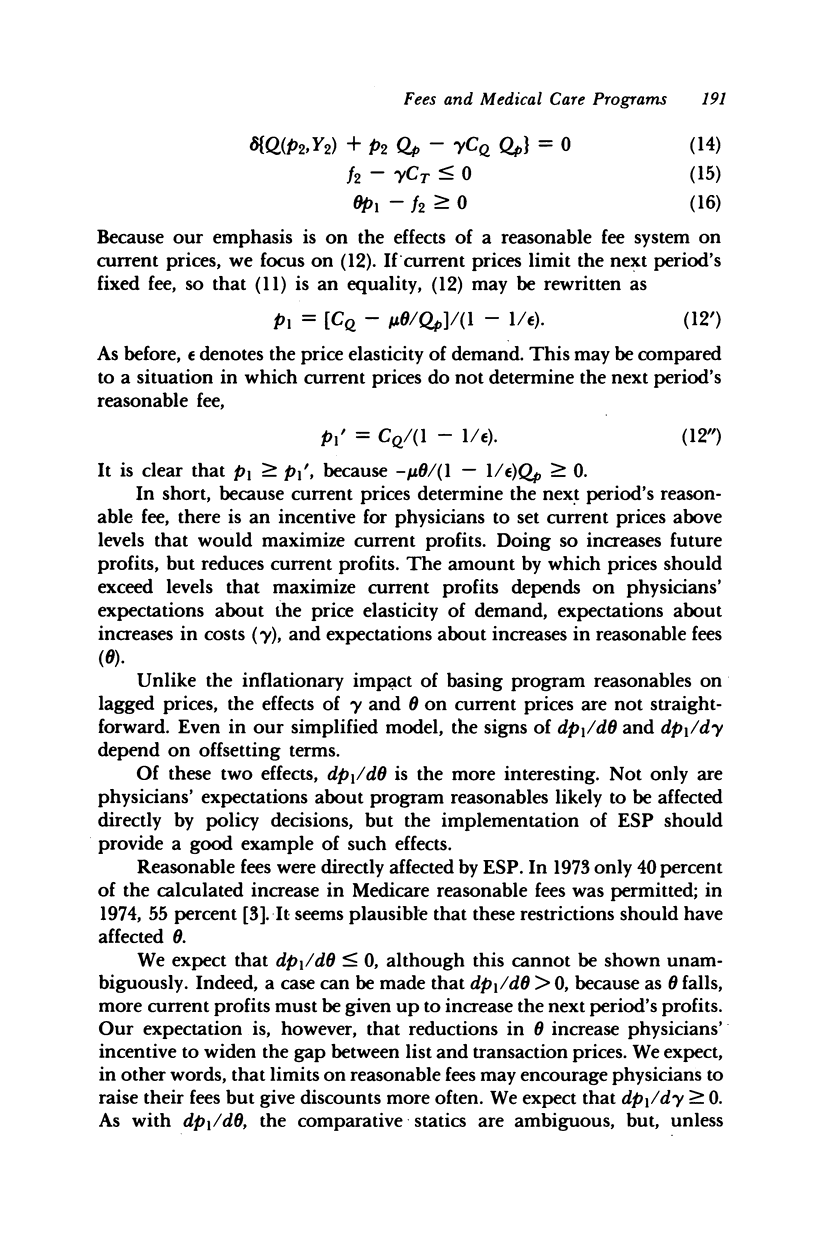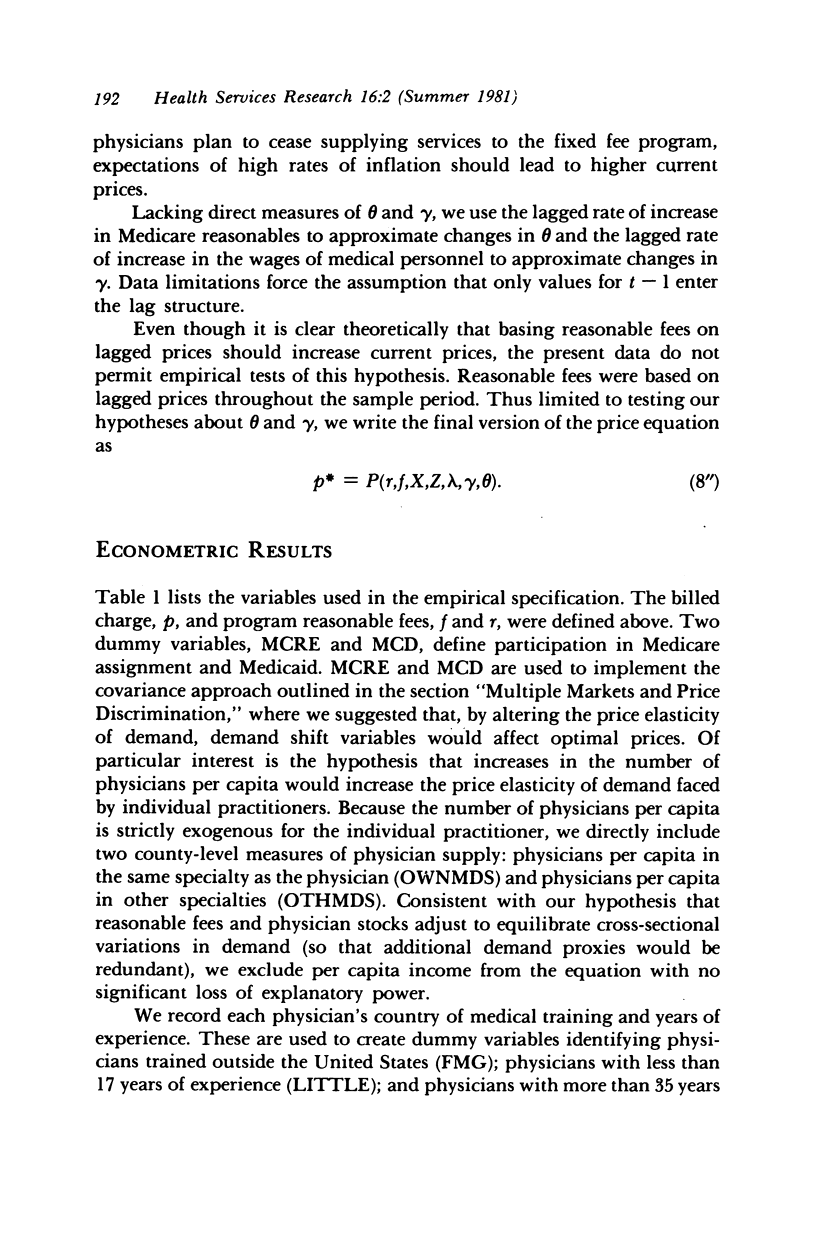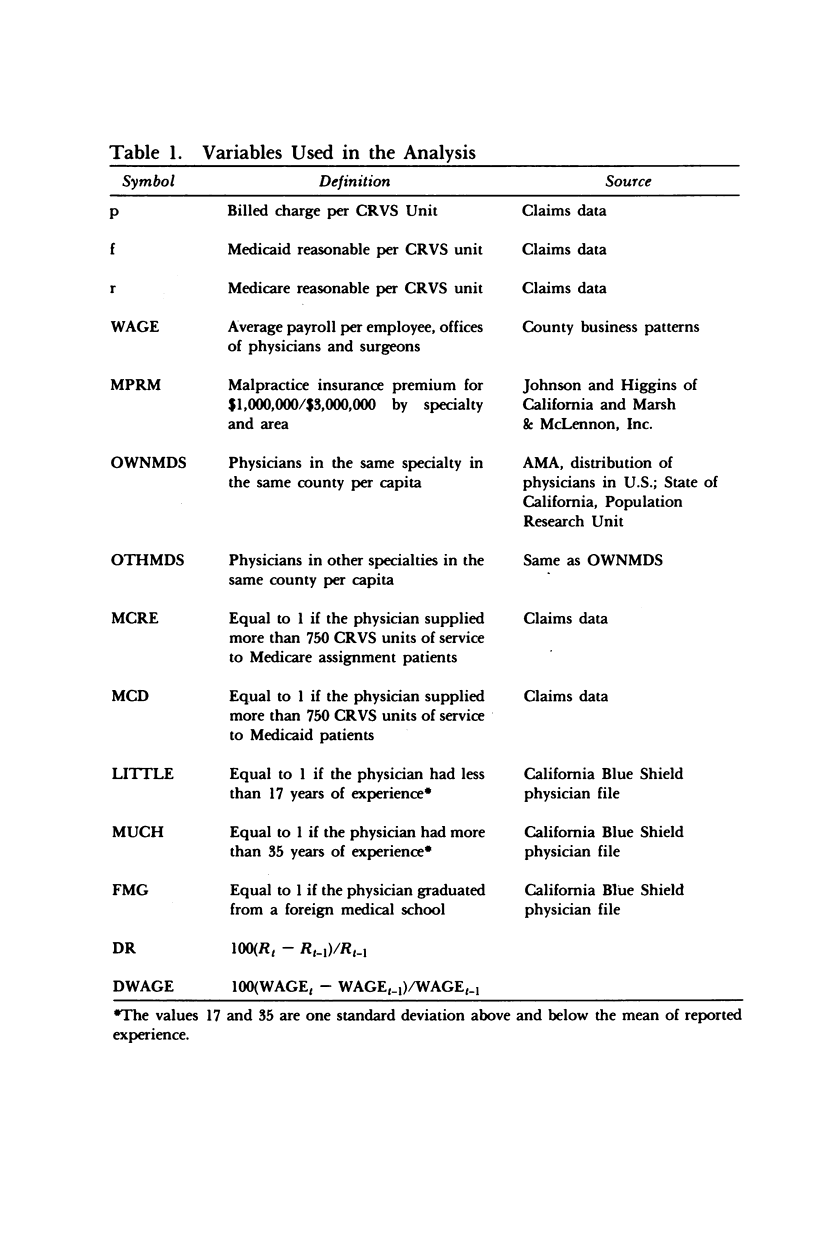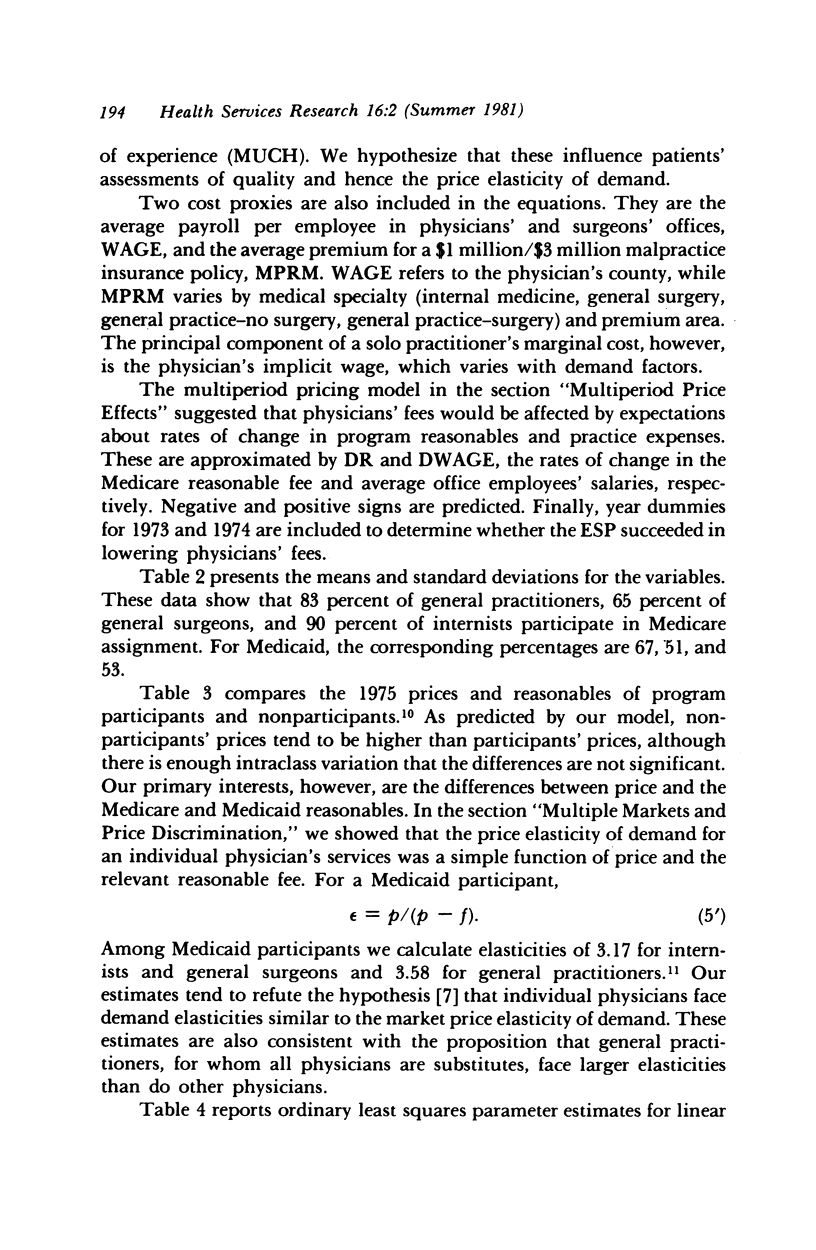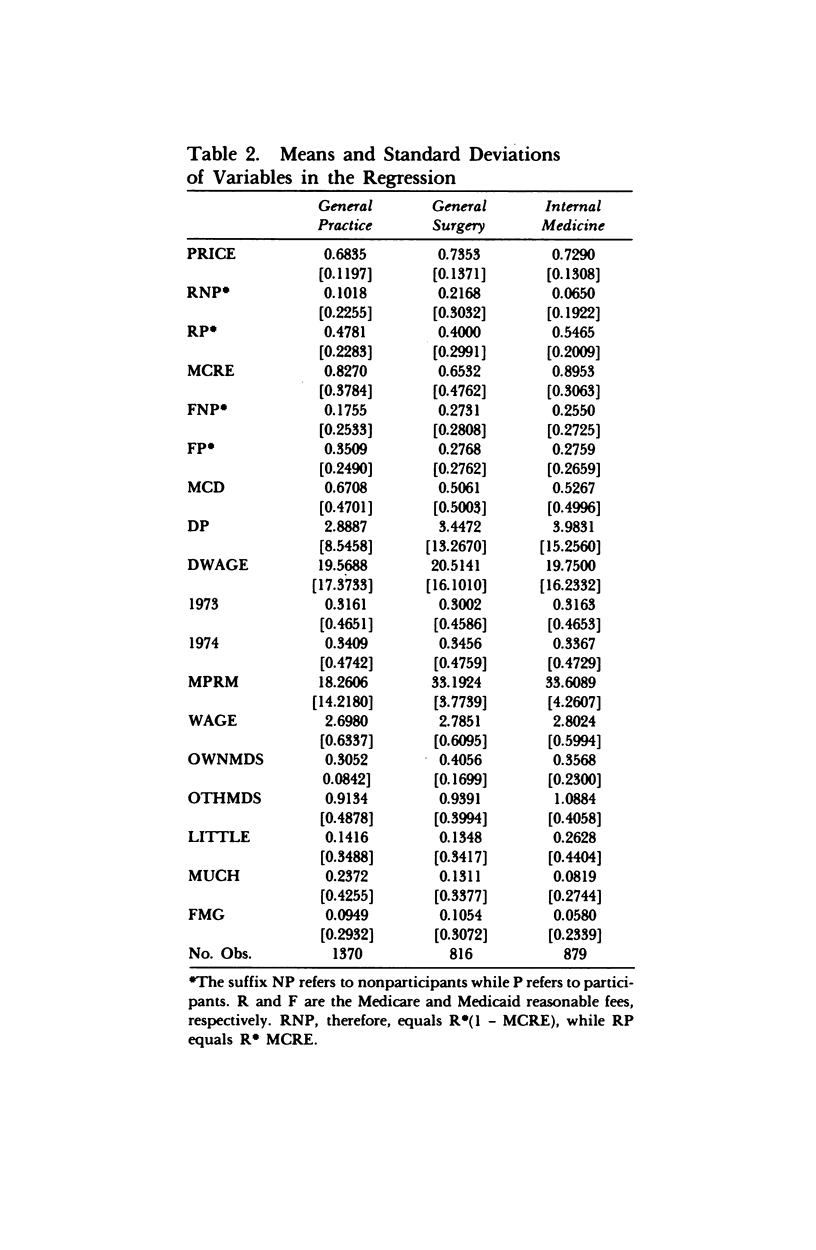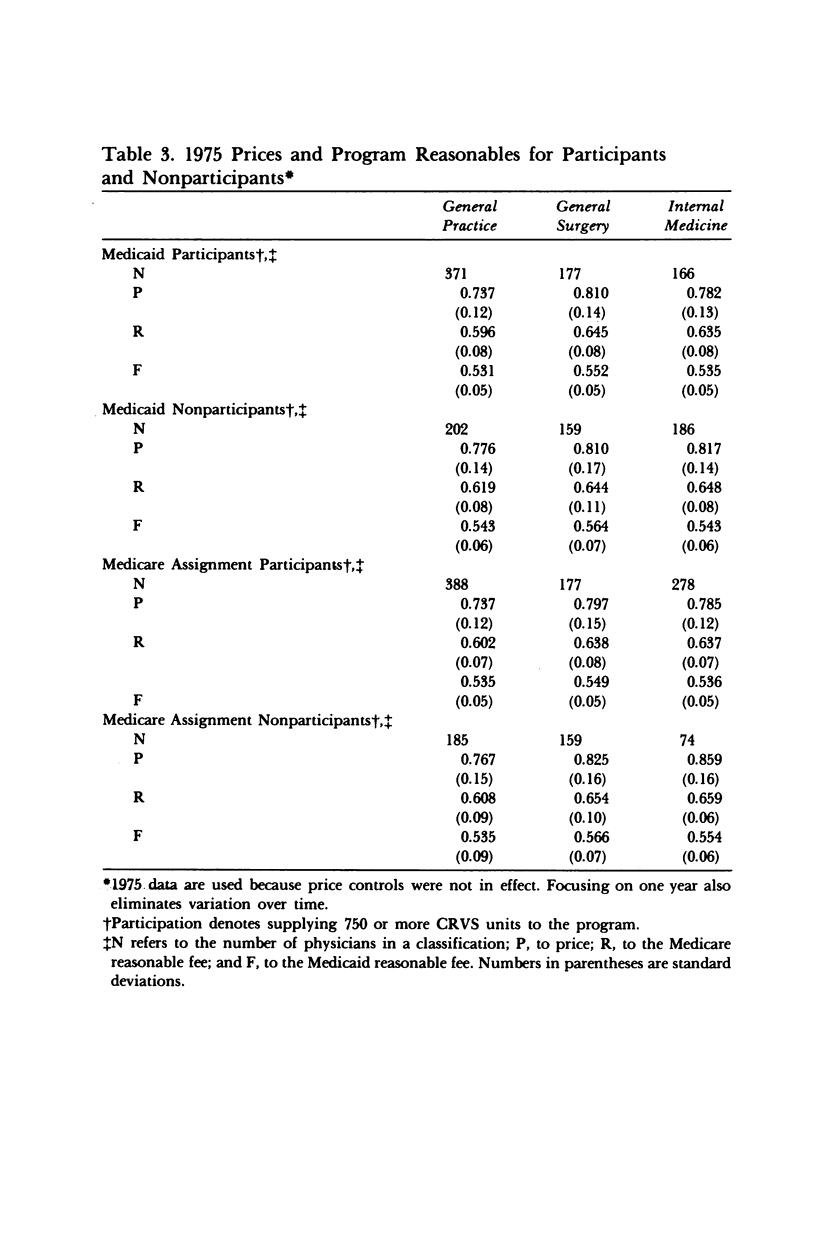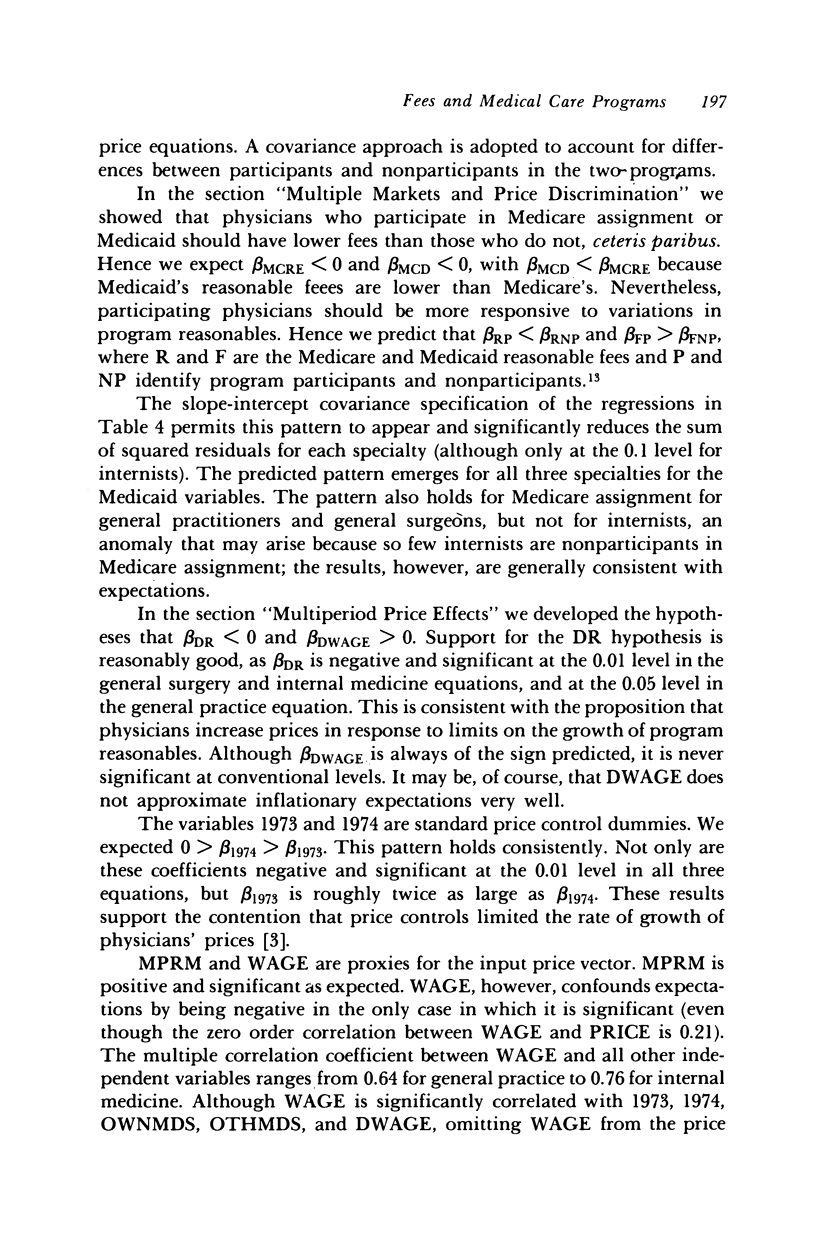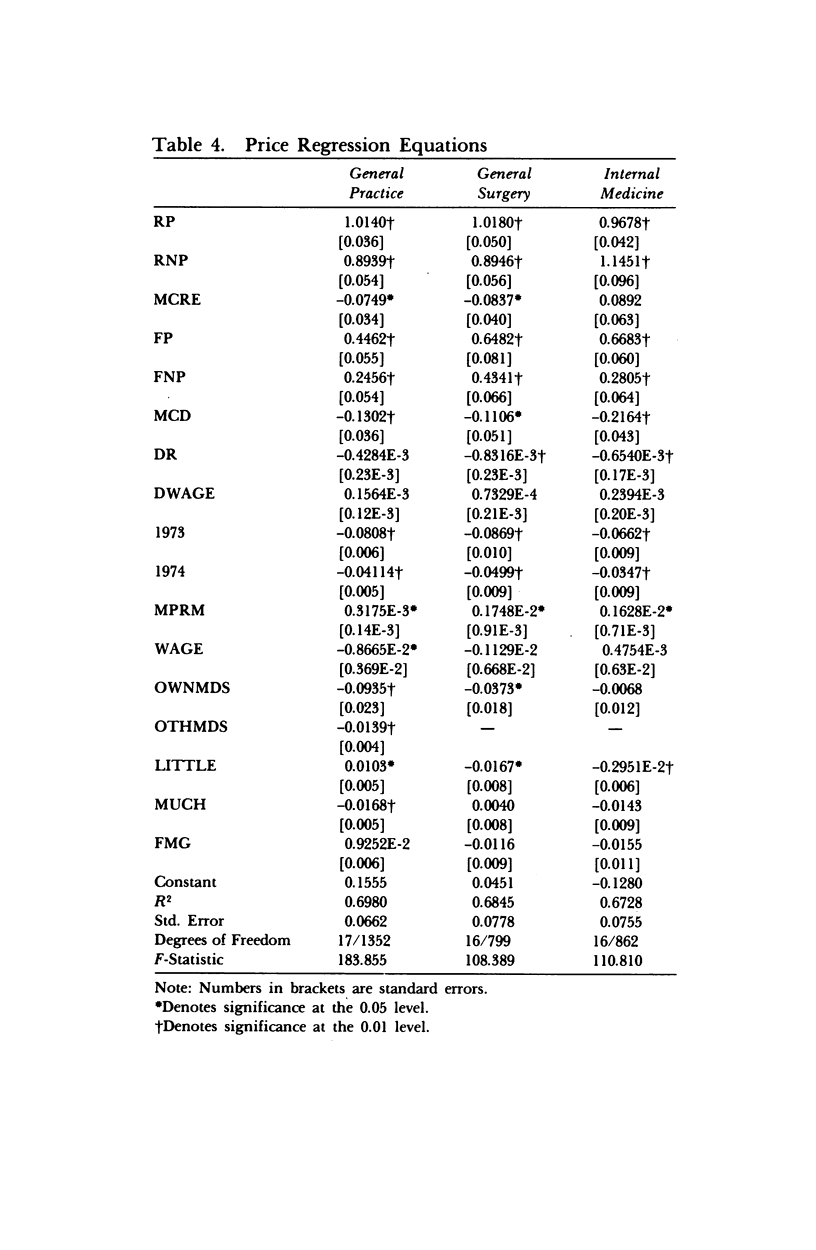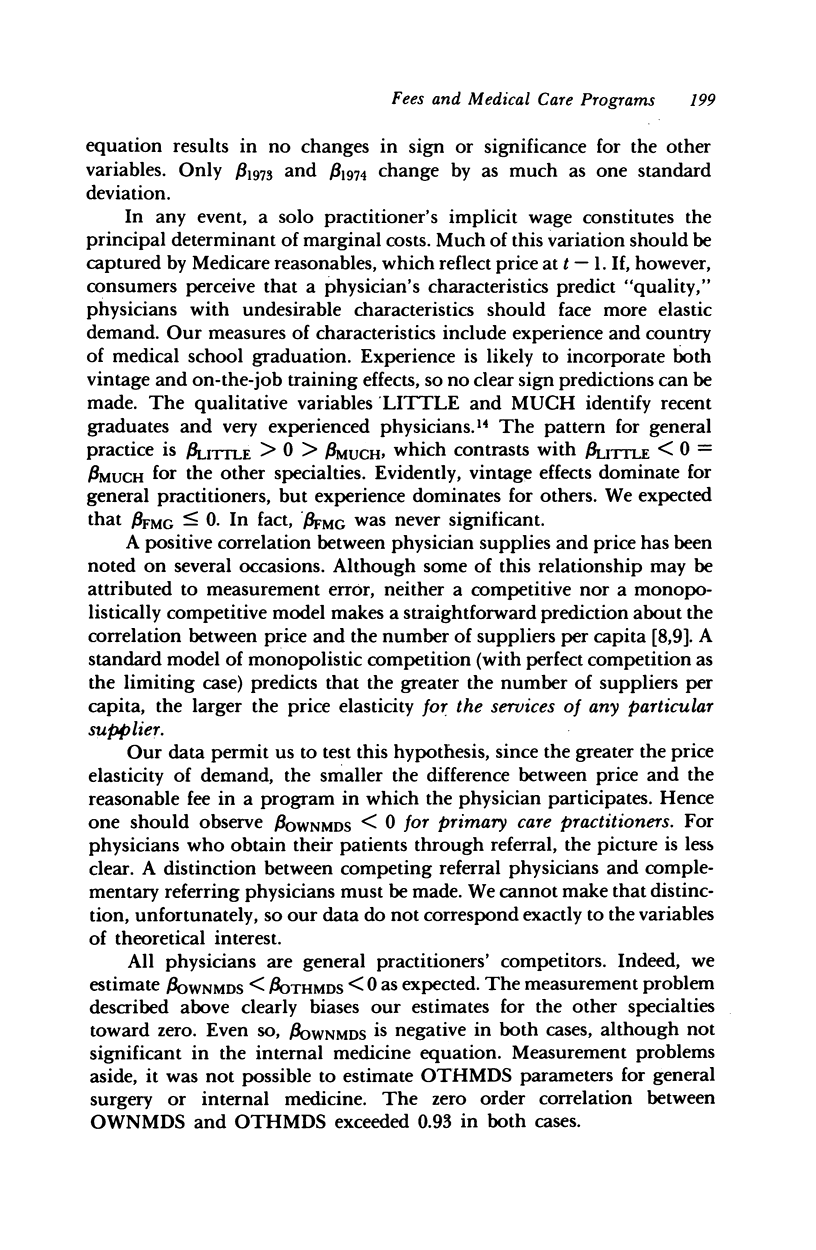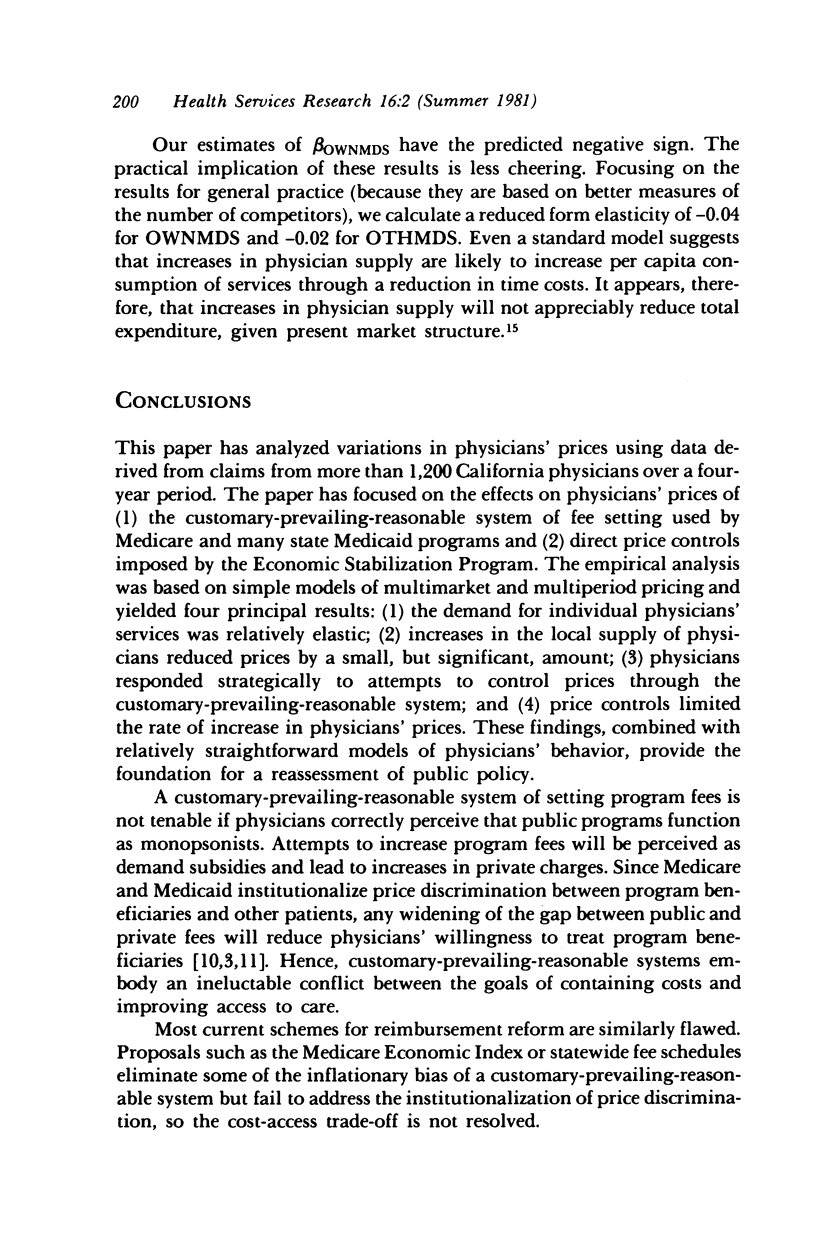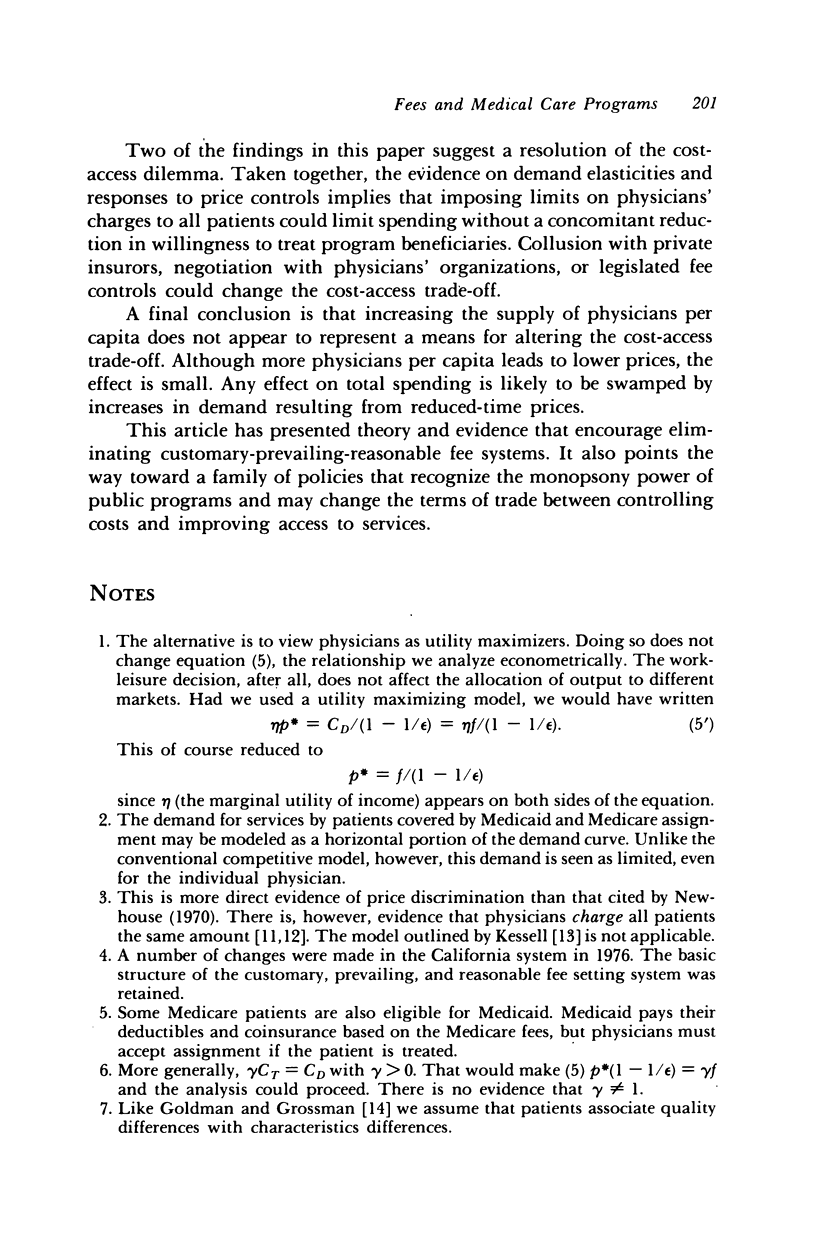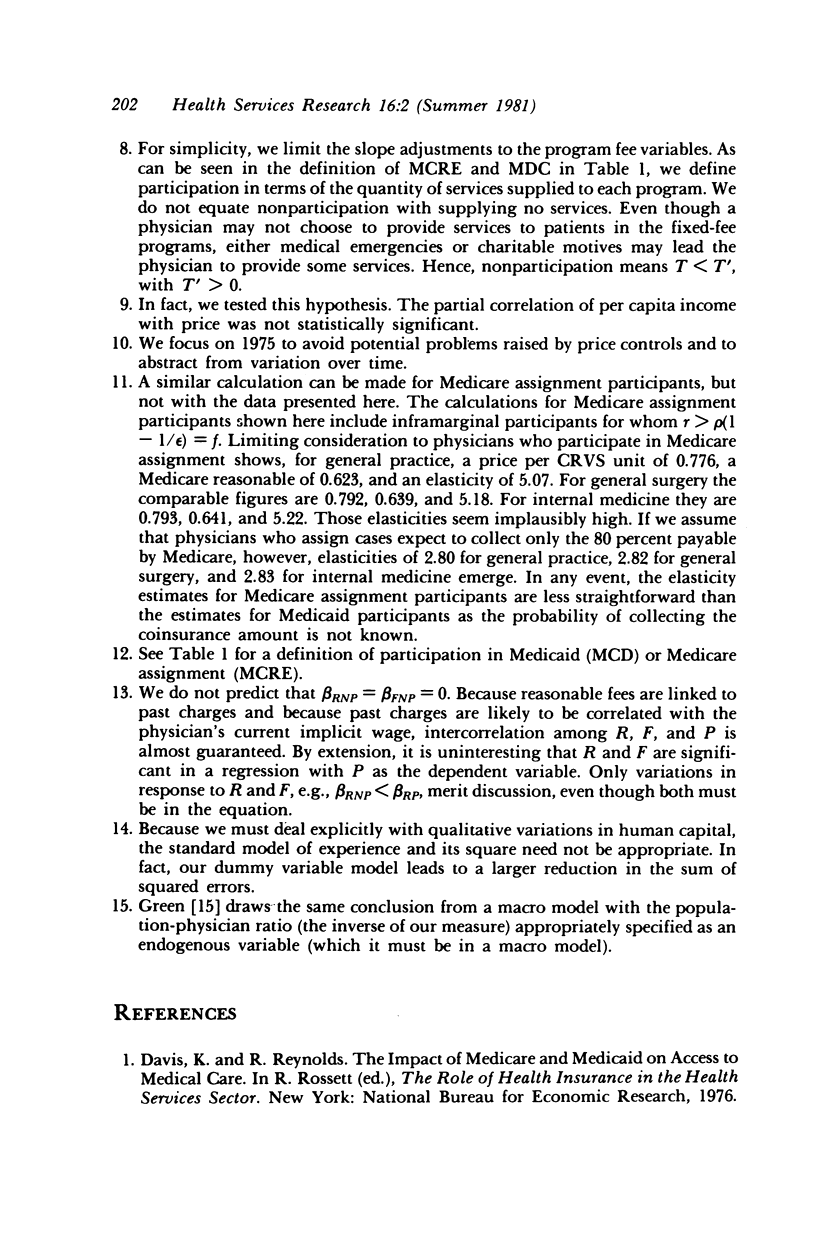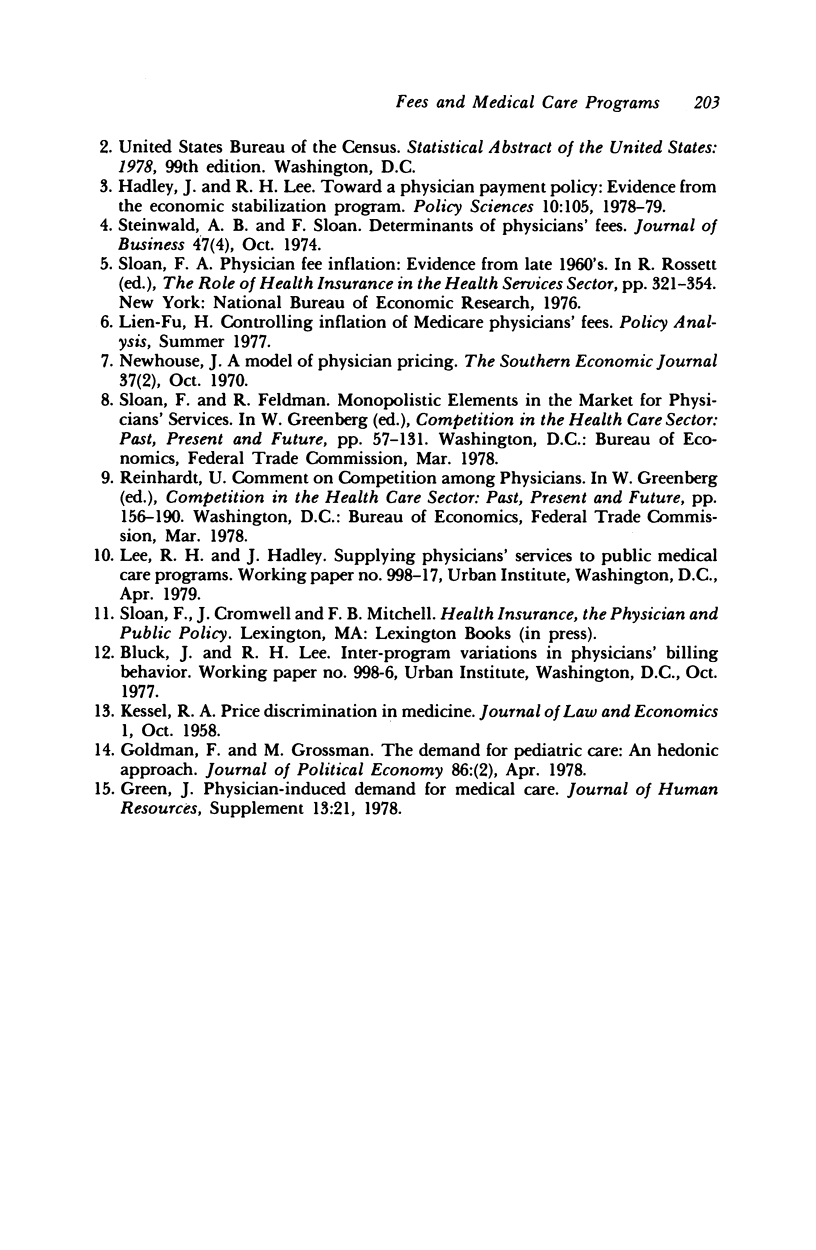Abstract
In this article we develop and estimate a model of physicians' pricing that explicitly incorporates the effects of Medicare and Medicaid demand subsidies. Our analysis is based on a multiperiod model in which physicians are monopolistic competitors supplying services to several markets. The implications of the model are tested using data derived from claims submitted by a cohort of 1,200 California physicians during the years 1972-1975. We conclude that the demand for physician's services is relatively elastic; that increases in the local supply of physicians reduce prices somewhat; that physicians respond strategically to attempts to control prices through the customary-prevailing-reasonable system; and that price controls limit the rate of increase in physicians' prices. The analysis identifies a family of policies that recognize the monopsony power of public programs and may change the cost-access trade-off.
Full text
PDF